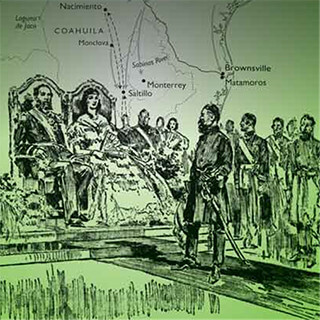Regime de Melo
Chapter XXX - Regime de Melo
————————————————————————————————————————————————————————————————————————
This was a major controversy for the Liberals as they more and more seemed like hypocrites, think began to take a turn for the worse in the 1822 elections which were fiercely fought between the conservatives and the liberals, with both sides used voter suppression, blackmailing as well as full blown assassination. Things were so bad that people began to think wether Brazil would actually make it through the crisis and wether they were right to go for liberalism, things however would only get worse and as votes were counted it was announced that Henrique Garcias won his re-election, which of course was full of fraud and things democracies don’t usually do, however since he knew how precarious his position was and recognizing the need to approach the conservatives he choose the speaker of the house to be a conservative (aka the guy who would successes him if he died) and so fate began to act and on the 7th of June 1823 Henrique died the most pathetic way ever… falling down a flight of stairs… yep. This however meant that the speaker of the house a guy named Enzo de Paula Souza e Melo became PM after a short vote in both houses and o boy was he going to enact some vengeance, in fact this period from 1823-1829 became known as the “Regime de Melo” which lets just say was not a nice place to be if you were a Liberal.
First and foremost a lot of Liberals who just so happened to oppose him found themselves charged with corruption and embezzlement with many of them being thrown into prison or simply being stripped of their positions, and what a surprise that the replacements for them were people who agreed with him, after the little purge which became know as the “Noite das Garrafadas”[1] he sought to implement his agenda upon the nation, first and foremost the tariffs put on by the Liberals were once again repelled meaning that any hopes of building a National industry were once again lost, next came the centralization of power something which Melo supported and so began a process of centralizing the nation, he managed also managed to repeal to “Lei do Voto” as well as create a new law called the “Lei do Governo justo” which allowed the government to appoint a new Governor to a province in case the province’s Governor had either died or been sent to jail, it just so happened that in 1825 the governor of Grão-Pará had died from yellow fever and the governor of Pernambuco was arrested on dubious corruption charges, seeing an opportunity to gain control over 2 traditionally liberal provinces Enzo wasted no time in appointing 2 of his cronies as governors of Grão-Pará and Pernambuco, something which would eventually come to bite him in the ass.
Now of course like all people who seize power and create a proto-dictatorship we need censorship, it just so happens that most news articles and journals are opposed to your regime so of course he went all in and cracking on dissent, many journals had their headquarters raided and not by government troops but rather by squads of goons loyal not even to the Conservative party but to Enzo himself, it was also at this point that the crown in Lisbon essentially had enough of all of this bullshit so the king sent a letter chastising him for his anti-Democratic actions and that he either needed to step down or undo most of his work as PM, now a normal person might have looked at the letter and realize that he had gone to far and needed to stop, but not Melo instead he wrote a letter back to Lisbon calling the king a “pig in his royal pigsty” this was of course to be kept a secret but, in 1826 an Italian journalist living in Brazil by the name of Liberio Badaró leaked the content to the press, Melo then promptly got rid of him as he was found dead a couple days later, this was of course the preaching point o for most people as he had essentially completed the dictatorship tutorial and they didn’t want to be the next.
So in December of 1826 a group of Liberal and Conservative politicians gathered in order to oppose the madman, their plan was to remove him by force and instigate a rebellion in the North and Northeast of Brazil and with Portuguese assistance remove the tyrant from São Sebastião, they need to act quickly tough less they wanted to be hanged, thankfully for them their bid proved successful as the North and Northeast specially the provinces of Grão-Pará and Pernambuco were highly discontent with the current situation, by April of 1827 they made contact with Lisbon which supported their bid for revolution, so on the 13th of May of 1827 at the city of Pernambuco a mob led by the Liberal politician Bermudo de Carvalho Leão overthrew the unpopular governor and proclaimed that they were going to save Brazil from the mad tyrant, similarly in Grão-Pará the governor was also overthrown and a Liberal governor replaced him, during the spam of 4 weeks all provinces north of Nova Beira had rebbeled against Enzo, they elevated Bermudo as their provisional leader and declared that “it’s not anymore a matter of conservative against liberal but rather the people of Brazil are be free or not” and so begins the Brazilian Civil-War.
[1] “The Night of the Bottle Battle” so called for after the members of parliament were arrested a mob sought to stop the arrest and fought the soldiers by throwing bottles at them only to be met by a hail of fire before dispersing
Last edited:

